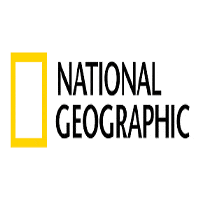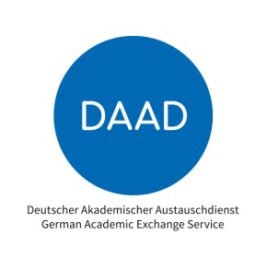
Call for Proposals: ‘Artificial Intelligence (AI) for Earth Innovation’ Grants for Developing AI Projects
Competition Grant / Award in Applied Science , in Natural Science , in Social Science ShortlistOpportunity Details
-
Opportunity ID 72031
-
Degree Non Degree Program/Certificate
-
Language Requirement Not Required
-
Opportunity Type : Fully Funded
-
Gender MaleFemale
-
Language of Instruction English
Opportunity Description
Overview
The National Geographic Society (NGS) is inviting proposals for projects in developing AI tools for the purpose of earth innovation and preservation of natural resources. NGS, in partnership with Microsoft’s AI for Earth program, supports innovative projects that generate and deploy AI tools to improve the way of monitoring, modeling, understanding, and ultimately management of Earth’s natural resources for a more sustainable future.
The partnership, through its grant, will support projects that use cloud computing to create and deploy open-source models and algorithms that lead to more efficient key analytical processes in the field. Furthermore, it supports projects that will build tools such as applications, application programming interfaces (APIs), or packages to be shared.
Details
Application deadline: 21 October 2020
Organizer: National Geographic Society
Project funding period: 1 year
Why this program?
Several and multi-faceted challenges are the threats facing the natural systems and biodiversity we rely on. Therefore, the proposed work should, in the framework of this call, focus on one or more of the topics below and create generalizable, measurable tools that can be used by other environmental researchers, investors, and conservationists.
Biodiversity: Biodiversity is speedily declining worldwide. AI can help us understand and combat challenges such as these:
- Human-wildlife conflict
- Offensive species introduction and spread
- Habitat loss, including agricultural and urban encroachment
- Species discovery, identification, and distribution
- Wildlife poaching and trafficking
Climate Change: Countries and communities are involved in climate resilience, adaptation, and mitigation efforts across the globe. AI can help in areas such as these:
- Identifying and quantifying carbon sequestration
- Overseeing and understanding afforestation/reforestation efforts
- Identifying fire risks and ways to reduce damage
- Extreme weather and climate modeling
- Sustainable land-use change
- Resiliency to effects affected by extreme events (e.g., droughts, floods, other natural disasters)
Benefits
Grant value
- An amount of $5,000 to $100,000 may be available to successful applicants.
- The budgets of successful proposals will comprise of reasonable, well-justified costs directly required to complete the project.
- In addition to financial support, successful applicants will receive free access to AI for Earth APIs, applications, tools, and tutorials, and support for their computational work on Microsoft Azure.
- Microsoft will help the project owners make their models and tools accessible for other environmental researchers and innovators.
Eligibility
- NGS encourages applications from around the world.
- All applicants must have at least 18 years of age at the time of applying.
- Applicants should not have an active grant from NGS, nor should they have already been awarded a grant in the current cycle.
- If planning to work outside of your home country or community, you should have at least one local collaborator.
- Projects must have at least six months starting date after submission of a proposal to secure the fund.
Specific project requirements
All models receiving support through this grant must be open source, and grant recipients must be eager to publicly share both the underlying data and their developed solutions—including its components.
More specifically, grant recipients must do the following:
- Release source code for projects publicly under the MIT license and showcase their work on the Microsoft AI for Earth Technical Resources page
- Publish the training data on which their solutions are developed publicly in a standard digital format
- Develop and share their solutions on Microsoft Azure
Evaluation
Projects’ assessment criteria include:
- Justification and significance of the proposed focus area
- Justification of the need for cloud computing
- Probability of the model or tool to scale and produce a lasting impact
To prepare a strong proposal, consider building a multidisciplinary team that spans technology and environmental science. Necessarily, at least one member of your team should have demonstrated technical skills (such as in machine learning, statistical data analysis, scientific modeling, software development, and/or remote sensing) to successfully complete the proposed project.
How to apply for an NGS grant?
All applications must be submitted through the online application system. The organizer does not accept mailed or emailed applications. All application materials must be submitted in English.
Required documents
- A resume/CV
- A two-minute video for early-career grant applicants to help evaluate their proposal
- A budgetary description/plan
- Team member details, and
- References
For more details about the grant program, a sample proposal, and guidelines on how to prepare your proposal, visit the official link.

